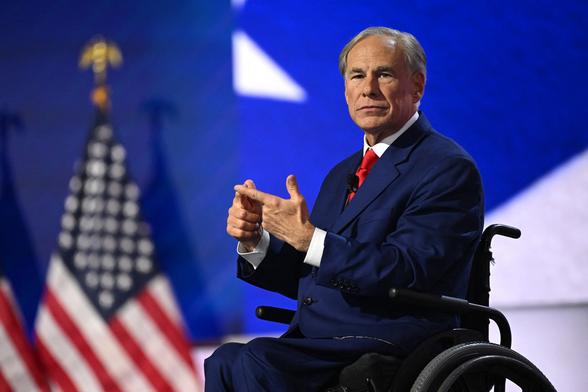2025-10-19 16:13:29
Sen. Bernie Sanders said at a “No Kings” protest on Saturday that mega-billionaires have “hijacked” the economy,
slamming some of the wealthiest people in the nation.
“This is about a handful of the wealthiest people on earth who,
in their insatiable greed,
have hijacked our economy and our political system in order to enrich themselves at the expense of working families throughout this country,”
Sanders said in a clip highlighted by Mediaite.
“I am talkin…
2025-10-17 05:03:10
“‘Sending armed soldiers to suppress peaceful protests is what kings and dictators do — and Greg Abbott just proved he’s one of them,’ Texas House Minority Leader Gene Wu said in a statement.”
https://www.politico.com/news/2025/10/16/greg-abbott-…
2025-08-20 08:49:40
DIPLODOCUS I: Framework for the evaluation of relativistic transport equations with continuous forcing and discrete particle interactions
Christopher Neal Everett, Garret Cotter
https://arxiv.org/abs/2508.13296
2025-08-15 13:31:00
Alaskans greet Putin with Ukrainian flags, protest 'war criminal hanging out here' (Veronika Melkozerova/Politico)
https://www.politico.eu/article/alaska-vladimir-putin-donald-tump-summit-ukraine-flags-protest-war-criminal/
http://www.memeorandum.com/250815/p21#a250815p21
2025-09-14 14:11:36
Richard #Grenell (#USA, former ambassador to Germany) is a conceited macho, not particularly intelligent, but obsessed with power. These fifth-rate types, who suddenly see their political opportunities, prove to be particularly perfidious.
Grenell should be declared persona non grata by the EU.
People l…
2025-10-04 18:10:10
Crazy things are happening in the US, the country is sliding towards autocracy/fascism.
https://www.politico.com/news/2025/10/04/trump-national-guard-illinois-00594266
2025-08-14 13:26:02
Federal agents in Trump's crime crackdown set up checkpoint in popular D.C. nightlife area (NBC News)
https://www.nbcnews.com/politics/trump-administration/national-guard-troops-washington-dc-trump-police-checkpoint-protesters-rcna224842
http://www.memeorandum.com/250814/p37#a250814p37
2025-10-11 23:29:46
This week, Homeland Security Secretary Kristi Noem staged a bizarre photo op in Portland that appeared designed to bolster Trump’s effort to deploy Oregon’s National Guard against ICE protesters in the city.
Noem stood on a rooftop observing protesters below, and MAGA influencers hailed it as a moment of extraordinary heroism against a powerful, implacable enemy.
“Noem just stared down violent Antifa rioters on the roof of a Portland ICE facility,” one wrote.
Alas, it turn…
2025-08-11 19:10:40
Protesters Gather Near White House as Trump Unveils D.C. Plans (Karoun Demirjian/New York Times)
https://www.nytimes.com/2025/08/11/us/politics/national-guard-dc-protests.html
http://www.memeorandum.com/250811/p81#a250811p81
2025-10-09 12:20:51
JB Pritzker Has Had It With Democrats Who Won't Stand Up to Trump (New York Times)
https://www.nytimes.com/2025/10/08/us/politics/pritzker-trump-national-guard-chicago.html
http://www.memeorandum.com/251009/p15#a251009p15



